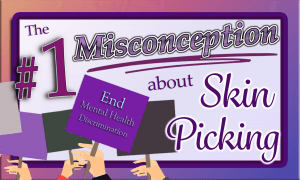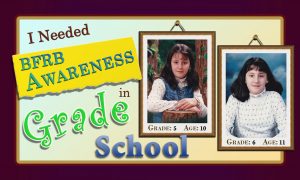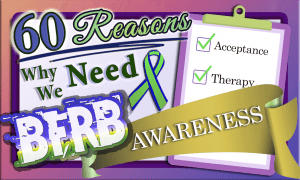Skin Picking Support
Awareness ➖ Recovery ➖ Reviews

The #1 Misconception About Dermatillomania
While efforts have gone a long way to inform the population about the existence of BFRBs, people with visible marks can be mistaken for having a skin disorder, or a stigmatizing condition such as AIDS. People with dermatillomania can also be stereotyped as unhygenic, based on tropes that people with acne don’t take care of their hygiene or diet. These immediate judgments can have devastating emotional consequences for someone sensitive to the appearance of their skin, causing them to isolate and have an increase of social anxiety (among other possibilities).
Read more
Resource Review: “Doesn’t It Hurt? Confessions…”
Edited by Sandy Rosenblatt, “Doesn’t it Hurt? Confessions of Compulsive Hair Pullers” is a compilation featuring powerful stories of pain and perseverance from those living with trichotillomania, a body-focused repetitive behavior (BFRB).
Read more
How to Accept Your Dermatillomania
It’s hard to accept a condition that you didn’t want and never asked for. The difficulty in coming to terms with having a mental health disorder that causes visible wounds on the skin can be overwhelming in day-to-day life. How can a person look at their skin and be okay with what they see? I learned how
Read more
Resource Review: Laura Barton’s “Project Dermatillomania: Written on Our Skin”
In being the second title in the series, Project Dermatillomania: Written on Our Skin (PD2) provides a vivid look into the lives of many women who have excoriation disorder (aka “dermatillomania”). The 116 pages of this collective includes poems, personal stories, and artwork that conveys the severity of this often misunderstood disorder while providing intimate insight into the lives of the 19 contributors of this book, including its author Laura Barton.
Read more
I Needed BFRB Awareness in Grade School
The senior years of elementary school would have been the perfect time to learn about these mental health afflictions at an age-appropriate level. If taught from a simple, non-judgmental, place I would have still felt alienated as I did in grade six when peers would look at me in health class during discussions about acne as if I was going to add in a personal perspective.
Read more
The Sensationalism of Dermatillomania
With awareness of Body-Focused Repetitive Behaviors (BFRBs) beginning to gain traction across the world, it is important to discuss how disorders such as dermatillomania affects a person’s quality of life. From social isolation to embarrassment of marks, most people who compulsively pick at their skin keep it a secret so that they won’t be judged […]
Read more
My Dermatillomania Recovery
Author and mental health advocate Angela Hartlin shares her journey to recovery from compulsive skin picking after she appeared on The Doctors in 2015.
Read more
Resource Review: “Project Dermatillomania: The Stories Behind Our Scars”
Compiled by Laura A. Barton, Project Dermatillomania: The Stories Behind Our Scars is an easy yet gripping read containing eleven stories of people with excoriation disorder who met each other through the Facebook group Dermatillomania Awareness. This book is simplified only in terms of reading level, but certainly not in content.
Read more
Resource Review: “Skin Picking: The Freedom to Finally Stop”
As a holistic health coach with a doctorate in chemistry and a former skin picker, Annette Pasternak’s guide “Skin Picking: The Freedom to Finally Stop” explores important techniques in reducing the compulsive behavior while also sharing her personal experiences with excoriation disorder.
Read more
60 Reasons Why We Need BFRB Awareness
Body-Focused Repetitive Behaviors (BFRB’s) are a group of obsessive-compulsive and related disorders that describes a chronic behavior that causes damage to oneself repetitively, often in order to feel psychological relief. It is important for the public to understand how much people with trichotillomania, dermatillomania, and other BFRB’s struggle and how awareness of these disorders can improve the lives of sufferers.
Read more